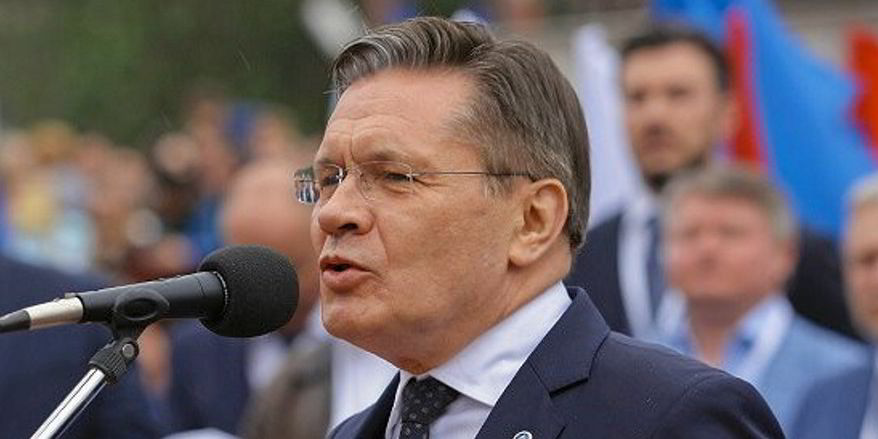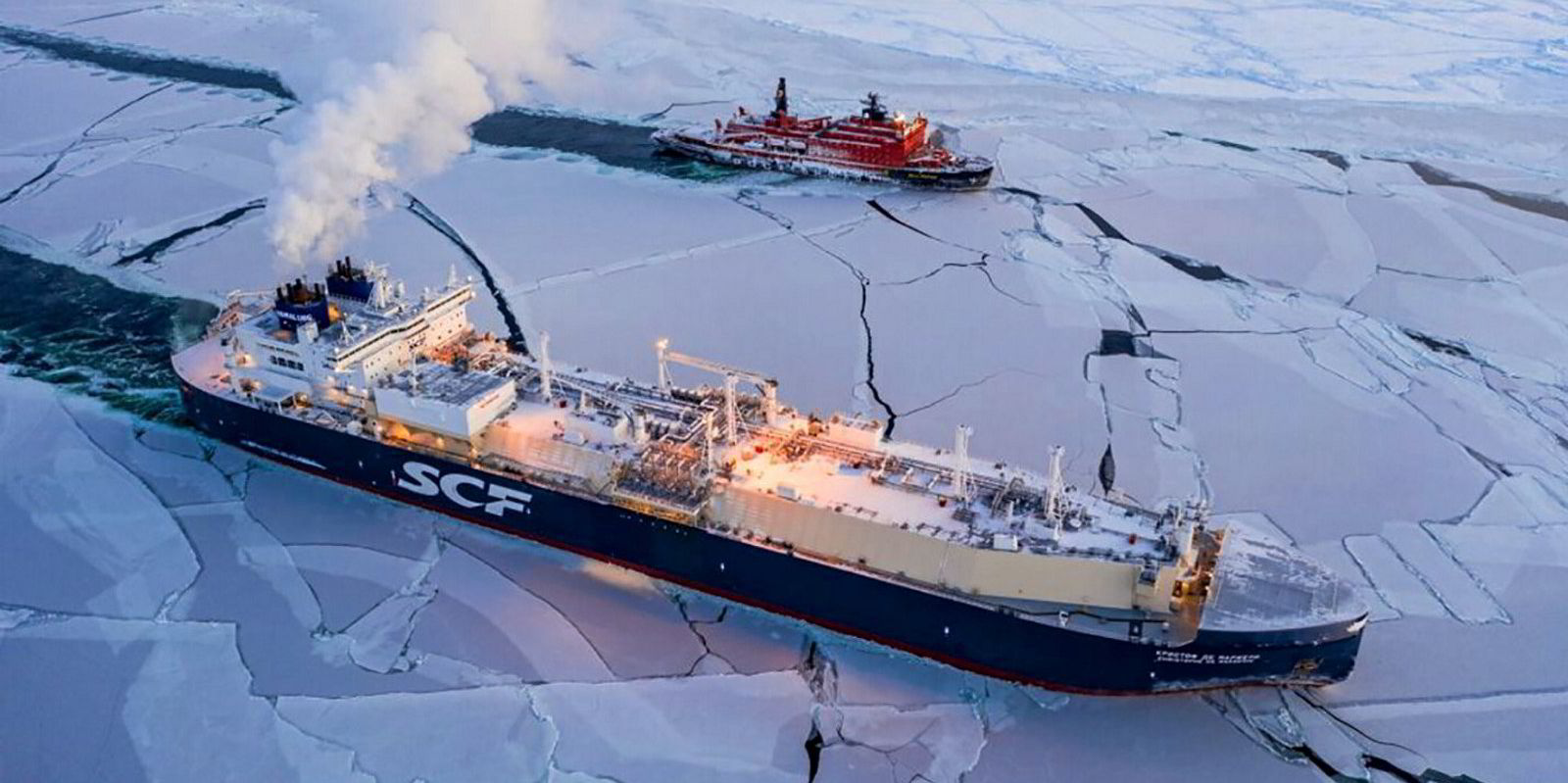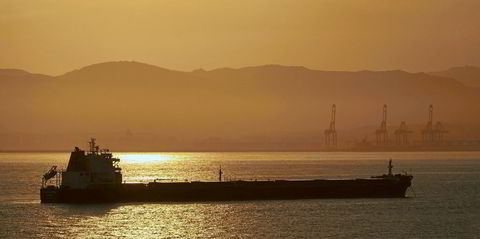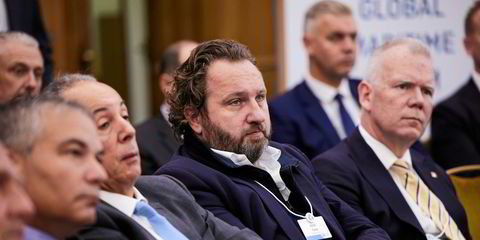The state takeover of the Fesco transport group is part of a plan to create the cheapest shipping route between Asia and Europe off Russia’s northern coast, the head of nuclear power company Rosatom says.
Rosatom CEO Alexey Likhachev said the aim is to redirect a “significant portion” of global shipping between producers in Asia and consumers in Europe along the Northern Sea Route (NSR), Interfax reported.
President Vladimir Putin signed a decree on Wednesday transferring Fesco shares to Rosatom, which is responsible for NSR infrastructure and the icebreaker fleet needed to escort merchant shipping.
Fesco, the shipping and port operator, was formerly controlled by billionaire Ziyavudin Magomedov. He was convicted last year on charges of organised crime and embezzlement, jailed for 19 years and had all his assets seized. He says he is the victim of a political plot and has appealed against the judgment.
Putin’s instruction to develop the NSR at an “accelerated pace” contributed to the decision to transfer the Fesco shares to Rosatom, said Likhachev.
“We’re talking about the whole northern corridor, both in terms of connecting Russia and in terms of organising marine transit,” he told television network Rossiya 1, according to Interfax.
“Our objective is to reorient a significant portion of existing global marine shipping between the growing economy of Asia, South East Asia and the perhaps conservative but fairly large market of Europe.”
The route would seek to “offer the most attractive arrangement in economic terms for these two points of global development”.
The NSR is about 3,500 miles (5,600 km) long, defined by Russia as running from the entrance to the Novaya Zemlya straits in the west, along the Arctic coast above Siberia to Cape Zhelaniya on the Bering Strait in the Far East.
The NSR would provide an important shortcut, slashing voyage times and costs from Siberia to China.
The journey from Rotterdam to Tokyo via the Suez Canal is about 20,000 km, while the journey via the NSR is about 13,000 km.
Tankers and gas carriers have dominated among the vessels passing along the route this year, but Likhachev highlighted the role of Fesco in the container market.
Rosatom signed a joint venture deal with Dubai port operator DP World in June, a move aimed at enhancing container shipping in Arctic waters.
Magomedov is suing 22 companies and directors through the English courts, including Rosatom, pipeline operator Transneft and private equity firm TPG following his arrest and the loss of his companies.
He is seeking nearly $14bn, saying he was a victim of an “intricate” and “stealthy” conspiracy to take over Fesco after he was first detained in 2018. Fesco is one of Russia’s largest logistics players with interests in ports and railways, and owns at least 28 vessels.
Simon Bushell, a solicitor for Magomedov, said: “This decree is the culmination of an unlawful conspiracy against Mr Magomedov and his business empire, led by Rosatom and those representing it, and commenced during Mr Magomedov’s four-year pre-trial detention.
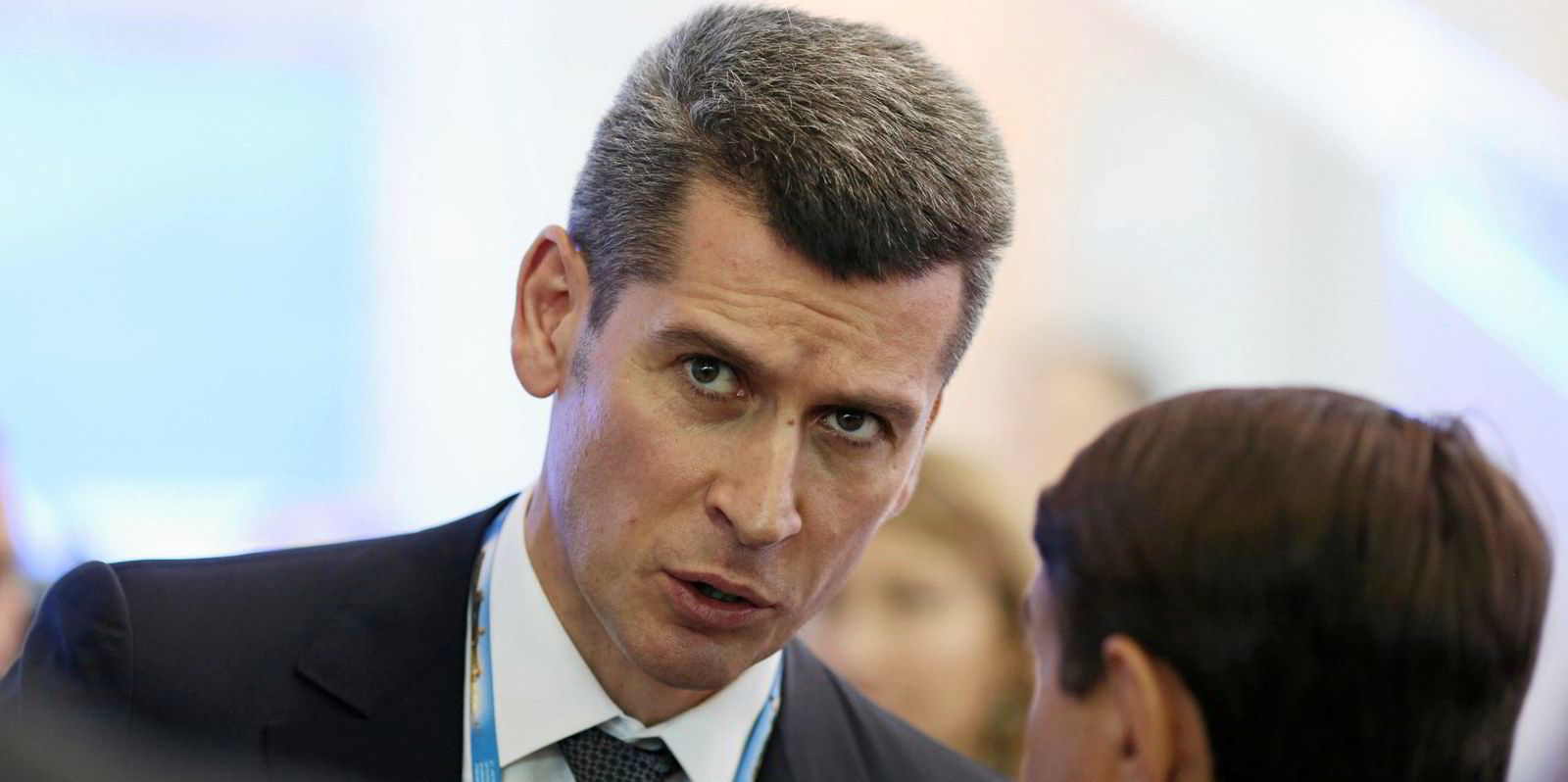
“He remains resolved to seek substantial damages in the English High Court litigation.”
The trial has yet to begin, but a judge last month said there was evidence to suggest that Rosatom and others threatened a hostile takeover of Fesco backed by “menacing behaviour”.
Magomedov and his brother, who was also jailed, claim that they fell out of favour with the leadership in Moscow in early 2018 and the government started to seize assets of “strategic importance” as part of a broader policy under Putin.
A court in January transferred 92.4% of Fesco’s shares that had belonged to Magomedov and his partners to the state, domestic media reported.
Read more
- US sanctions Russia’s Arctic LNG 2 project as it gets set for start-up
- Russia and DP World forge venture to send container ships through the Arctic
- Ukraine highlights ship damage in effort to derail Russia IMO bid
- Putin invites overseas investment in Arctic route on visit to ‘dear friend’ Xi
- Green Seas: Hydrogen fuelling technology moves forward amid focus on other alternatives
